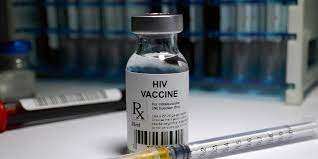APA-Durban (South Africa) While the world has several measures to prevent HIV, a South African scientist says the final hurdle to eliminating the virus altogether lies in the discovery of a vaccine.
South African Medical Research Council chief executive Glenda Gray told the ongoing South African AIDS Conference in Durban that in developing vaccines for COVID-19, research and experiences relied on decades of work on HIV vaccines.
“But HIV is a much more complicated beast than SARS-COV2. It mutates all the time. We’re starting right from scratch,” Gray said.
She said the HIV was “one of the most difficult viruses we’ve ever seen to try and find a way to prevent it using an HIV vaccine.”
What was needed was to understand what the SARS COV2 vaccines gave to research in terms of good neutralising antibodies “but didn’t give us long-lasting immunity – hence the reinfection,” she said.
“And we’ve got to learn from that with the HIV search for a vaccine,” Grays said.
Explaining some of the HIV vaccine development work that she was currently undertaking, Gray said in using immunogens, scientists were “trying to coax the immune system to develop those powerful neutralising antibodies that we saw with COVID.”
“To have a vaccine that will work, we need to have neutralising antibodies. So the work we’re doing is trying to teach the immune system to induce these powerful neutralising antibodies.”
The scientists have gathered at the three-day meeting in an effort to reignite the fight against HIV/AIDS, which has affected nearly nine million South Africans – the highest figure in the world, records show.
NM/jn/APA


